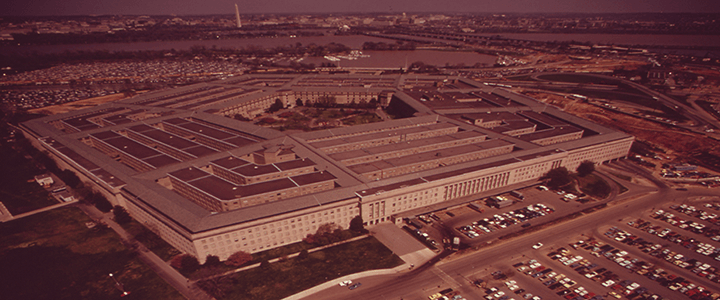Despite the fact that, as I’ve pointed out here several times, there is a wide chasm between the president’s “thinking out loud” moments and actual, vetted, coordinated policy, many of his opponents seem intent to believe that each day brings a fresh round of harbingers of the end of days.
Korea on the Tabletop
The latest episode (that I’ve noticed, anyway) involves a Joint Chiefs “tabletop exercise” depicting a hypothetical war on the Korean peninsula. Tensions with the Democratic People’s Republic were high long before Trump took office, and Kim Jong-un’s nuclear program, which made rapid strides during the Obama administration, was going to continue regardless of who won the 2016 election.
Wargaming potential scenarios in which the U.S. could find itself down into a war with North Korea is simply prudent thinking. And talking about the results of the exercise afterward is not unheard of. In fact, there is strategic value in discussing these wargames. It could be that the results are good and you want to let your potential adversary know that you’ve got it figured out as a means of deterrence. It could be that the results would be so catastrophic for both sides (more on this in a moment) that publishing the results can cause an adversary to reconsider.
And even though I said yesterday that a public affairs officer’s currency is trust, there is potential value in releasing deceptive information in order to observe the adversary’s reaction.
Yet even with all this, Chicken Little continues to insist the sky is falling with every new acorn that hits her back. (Yes, I know I’ve used the comparison before, but it’s just so apt).
But sometimes the perpetrators of these scares are supposedly respectable members of the foreign policy establishment. After the New York Times published a report of the Korean tabletop exercise, Dr. Colin Kahl, the “Steven C. Házy Senior Fellow in the Freeman Spogli Institute for International Studies’ Center for International Security and Cooperation” at Stanford University (it’s a mouthful, I know), took to Twitter. In addition to his impressive academic credentials, Kahl served as President Obama’s deputy assistant secretary of defense for Middle East policy, and then as national security adviser to Vice President Biden. He’s certainly not a slouch.
How bad would it be?
The Times report details a lot of things that anyone who has the slightest inkling about warfare and the situation in Korea would have already assumed to be the case: the logistics involved with deploying the proper manpower and equipment is an enormous task, there will be lots of casualties, evacuating them will be difficult, and after more than a decade and a half of counterinsurgency warfare, American forces might be unprepared to fight a more traditional force-on-force battle.
None of this should come as any surprise. But to Kahl, it was an indicator of panic in the Pentagon. “The fact that this leak is so specific, with half a dozen sources,” he tweeted, “suggests the Pentagon is VERY worried Trump will order a catastrophic preventive war against North Korea.”
Hogwash.
It’s beyond disappointing that someone with such an impressive a background would go so far off the deep end. Had anyone on the right made any kind of assertion like this during the Obama years, the indignant response would have been loud and long, and that person would have been relegated to the corner of the internet inhabited only by Alex Jones and the ghost of Art Bell.
But other than military reporter (and Iraq War veteran) Carl Prine, Kahl’s tweet was met with lots of paranoid agreement. Kahl has more than 51,600 followers, including some of the best names in national security journalism. Those followers (but not necessarily those reporters) retweeted his post more than 2,800 times and “liked” it more than 3,700 times (as I write).
Planning for a potential conflict with North Korea is the DOD’s job. Not planning for it would be a dereliction of duty. Talking about the outcome of wargames examining potential scenarios is not a sign that the Joint Chiefs are trying to wave-off the White House. Army Chief of Staff Gen. Mark Milley proclaiming “the brutality of this will be beyond the experience of any living soldier,” is not a hidden code, it is a plain statement of fact that anyone with a passing familiarity with warfare would take as a given.
The most accurate figures from the June 6, 1944 D-Day landings in Normandy are 2,499 American dead, with an additional 1,914 allied deaths. Put in perspective, 867 more soldiers were killed in a single day of combat on the beaches of Normandy than have died in more than 16 years of war in Afghanistan. The entire Second World War killed an estimated three percent of the entire planet’s population, military and civilian. In the three years of the Korean War, 33,739 Americans were killed in action.
War is a deadly business. It is not a dire warning that another war in Korea would be a bloody mess; it’s just an acknowledgment of the reality we all knew would be the case. Forget dialing down the rhetoric with North Korea. We need to dial down the rhetoric here at home first.



